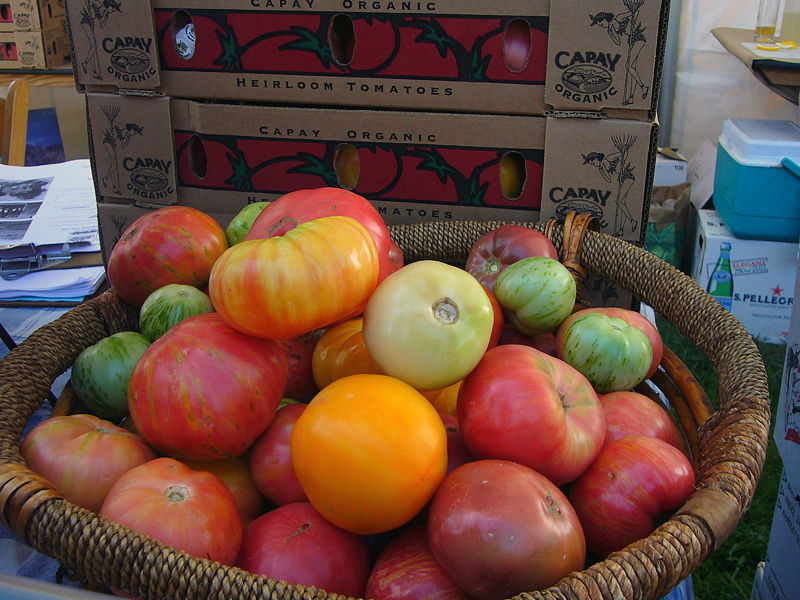
A new farmers market coming to East Lansing will provide local and organic food.
In July, East Lansing will get a new, open-air farmer’s market that will enable consumers to more easily buy Michigan produce and products, including those that are locally grown.
That sort of operation can help sustain communities across the state, experts say.
“What we’re trying to promote is production and marketing of more Michigan organic products,”said Jim Bingen of the Michigan Organic Food and Farm Alliance.
“Unfortunately,” he said, “a lot of the organic foods that are available at our supermarkets travel very long distances to get here.
“So, to the extent that we can promote more organic products, then we’re talking about revitalizing our own economy, reducing food miles and supporting Michigan farmers who grow these products. In that way it’s more sustainable, so we’re circulating the money within our own economy,” said Bingen, who is also a professor of community, agriculture and recreation resource studies at Michigan State University.
According to the Department of Agriculture, the food and agriculture business is Michigan’s second-largest industry.
And the MSU Product Center for Agriculture and Natural Resources reports that the state’s agri-food sector grew 12 percent in 2007 to an estimated $71.3 billion industry.
The report also showed the agriculture industry growing five times faster than the general economy.
Bingen said organic farming in the state is split between dry bean and grain production and vegetables.
The largest concentration of dry bean and grain production is the Thumb. Meanwhile, a wide range of organic vegetable growers operate on the west side of the state and along the Indiana border.
“There’s no one area — they’re different areas depending on the crops that are grown,” he said.
David Finet, the general manager at the East Lansing Food Co-Op, said there is growing consumer interest in organic foods.
“We’ve purchased a lot of produce at the co-op from local organic growers for years, and we’re finding that the more people are getting involved, there aren’t enough growers to meet all the demand that’s out there now,” Finet said.
He said the co-op’s produce is nearly 100 percent organic and other products with the organic label make up about 10-15 percent of the store’s inventory.
According to Bingen, an increased number of people want to become part of the organic farming sector.
Many growers come back into farming after a different career — “getting into it in a small way,” he said. “Most are interested in direct sales at the farmers’ markets or in some cases into community-supported agriculture,” a form of marketing that helps small-scale farmers sell their produce to area residents.
The industry is not without its struggles.
“Our biggest issue right now is trying to get more Michigan organic products onto our retail shelves,” Bingen said. “ Most of our growers are small scale and can’t provide the quantity of material on the regular calendar that’s required by some major chains.”
Finet adds that organic products usually cost more than conventional products because of the labor-intensiveness of growing organically, which is more difficult than conventional farming.
“The other thing that people have to consider is that the added cost — which isn’t as much as it used to be — is offset by future health care costs that people may be able to avoid by taking care of themselves throughout their lives.”
He said, “There are a number of studies and reports that suggest that organic foods are healthier for people. Not having pesticides and herbicides and things that are designed to kill living things on your food is good for you.”
Bingen also said the alliance — which is hosting a conference in East Lansing on March 6 and 7 on the sustainability of buying locally grown organic products —hopes that the Obama administration will continue to support the organic food industry in new farm legislation.
Currently, he said, a cost-share program run by the U.S. Department of Agriculture helps offset the expense of becoming organically certified by up $750 per year.
Finet said he believes the hard economic times in the state can create more opportunity for sustainability through organic, locally grown products. “That sense of community is something that people have really gone to, especially in more difficult times.”
Pingback: Organic products aim to boost sustainability in Michigan « Ask Theron Blog!